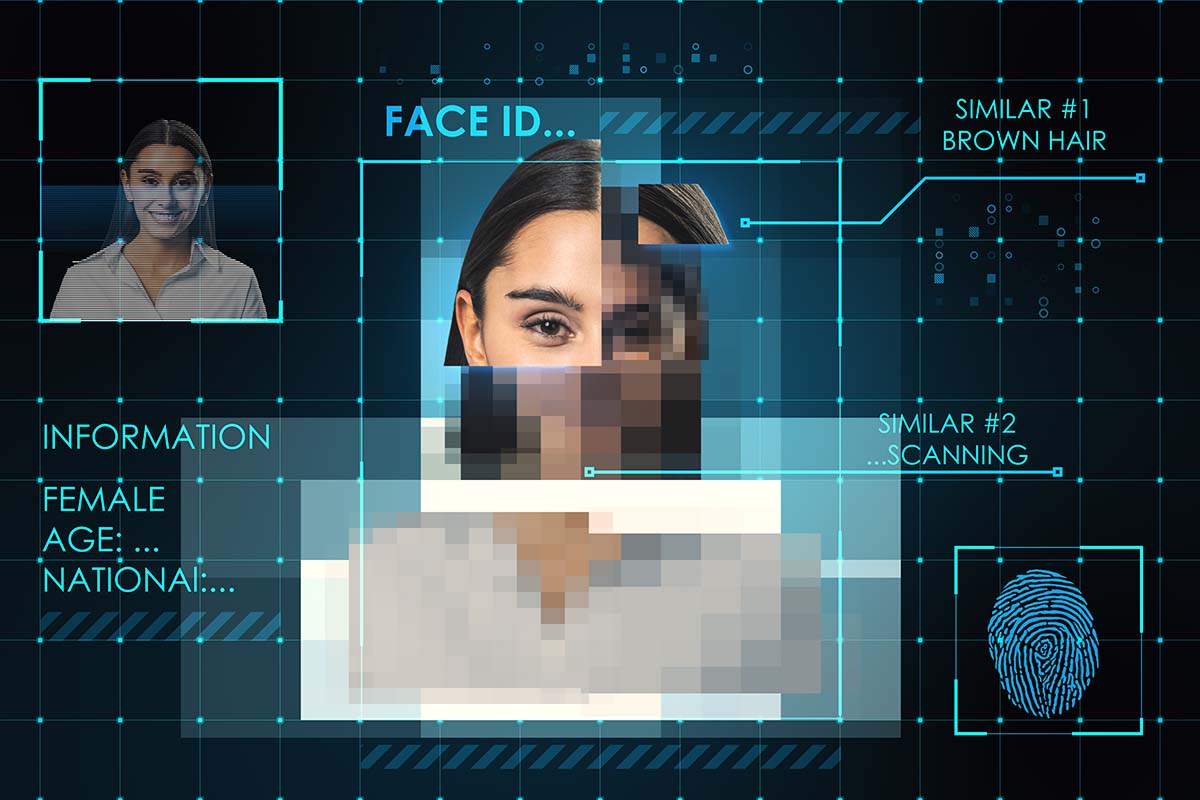Here is How Artificial Intelligence is Transforming Identity Verification
Key Points
- Enhanced Security and Fraud Prevention: AI-driven identity verification systems utilize advanced algorithms and biometrics to detect and prevent fraudulent activities, ensuring that individuals are accurately identified and reducing the risk of identity theft.
- Improved Efficiency and User Experience: By automating the verification process, AI reduces manual errors and accelerates decision-making, leading to faster onboarding and a more seamless experience for users.
- Scalability and Compliance: AI-powered solutions can handle large volumes of verification requests, making them ideal for businesses aiming to scale operations while maintaining compliance with regulatory standards.
Identity verification is crucial to doing business online, especially in sectors like e-commerce, healthcare, and finance, where trust and security are paramount.
Traditional methods, like asking for a government-issued ID, can be time-consuming and prone to errors, often frustrating customers and leaving businesses vulnerable.
However, advancements in artificial intelligence (AI) have revolutionized identity verification, making it faster, more accurate, and user-friendly.
AI doesn’t just streamline the verification process; it also plays a critical role in fraud prevention.
For instance, click fraud prevention and ensure that businesses can protect themselves from deceptive online activities that can drain budgets and skew data.
This post will explore how AI is reshaping identity verification and fraud prevention, enhancing both the customer experience and overall security.
Identity Verification and Enhancing the Customer Experience: Challenges of Traditional Identity Verification
There are various difficulties with using traditional identity verification methods. The possibility of fraud and mistakes is one of the major obstacles.
A person could easily register an account or access a service using a phony ID, for instance, resulting in financial losses or security breaches.
Furthermore, personally confirming identity documents can be labor- and time-intensive, which can cause delays and irritate customers.
Several traditional verification techniques rely on physical papers that can be misplaced, stolen, or altered, which makes them much more difficult to use.
Conventional identity verification techniques are typically time-consuming, ineffective, and prone to fraud, making them inappropriate for many organizations in the modern digital world.
KYC Verification and Compliance
Several organizations like Jumio utilize the “Know Your Customer” (KYC) verification process to confirm the identification of their clients.
In sectors like finance, banking, and e-commerce, where adhering to anti-money laundering (AML) standards is crucial, it is especially crucial.
KYC verification entails gathering and confirming private data, including a person’s name, address, and official identification.
Conventional KYC procedures can be laborious for customers and prone to mistakes, which can cause delays and annoyance.
Yet, AI-based KYC verification can assist firms in more effectively and accurately meeting compliance standards.
AI algorithms can swiftly and reliably authenticate a person’s identity while lowering the risk of fraud and mistakes by examining various data sources, including government databases, social media accounts, and biometric data.
Ultimately, KYC compliance is crucial for companies that want to run lawfully and keep their consumers’ trust.
Age Verification System and Online ID Verification
Age verification is becoming increasingly crucial for businesses that need to verify the age of their customers.
For example, gambling and alcohol sales are industries where age verification is critical.
Traditionally, age verification has been done by asking for a government-issued ID, which can be time-consuming and cumbersome for customers.
However, AI-based age verification systems can be built using machine learning models that analyze facial features, voice patterns, or even typing behavior to determine a person’s age more accurately and efficiently.
Another area where AI is making great progress is online ID verification. Customers may find online identity verification more secure and practical than conventional techniques.
To precisely confirm someone’s identification, AI systems can examine their biometric data, such as facial recognition, fingerprint analysis, or voice recognition.
Businesses may benefit from streamlining their verification procedures, enhancing client satisfaction.
Using AI-based age verification and online ID verification technology is transforming the identity verification process, improving speed, accuracy, and convenience for clients.
These cutting-edge solutions can be quite helpful to businesses that must verify customers’ ages or identities online.
Benefits of AI-based Identity Verification
AI-based identity verification offers several benefits over traditional methods. Here are some of the main advantages:
- Enhanced Customer Experience: By reducing the time and effort required to verify identity, businesses can streamline their verification processes, leading to faster service and greater customer satisfaction.
- Increased Accuracy: AI algorithms can analyze various data sources, including biometric data and social media profiles, to verify a person’s identity more accurately than traditional methods.
- Reduced Risk of Fraud and Errors: AI-based identity verification reduces the risk of fraud and errors, which can result in financial losses and security breaches for businesses.
- Improved Compliance: Businesses can meet compliance requirements more efficiently and accurately by using AI-based identity verification methods, such as KYC verification.
- Greater Trust and Loyalty: Businesses can increase customer trust and loyalty by reducing the risk of fraud and errors, leading to a better reputation and increased business opportunities.
Real-world Examples
Several companies have successfully implemented AI-based identity verification to enhance their business operations. Here are some real-world examples:
- A leading online gaming company used AI-based age verification to ensure that their customers were over the age of 18. This reduced the time required to verify identity by 90%, resulting in faster service and greater customer satisfaction.
- A healthcare company used AI-based identity verification to ensure patients’ identities were accurately verified during registration. This reduced the risk of medical identity theft and improved patient care.
- A digital payments company deployed AI-based identity verification to lower the risk of fraud and enhance the user experience. The organization was able to accurately authenticate the identification of its clients through the analysis of a range of data sources, including biometric data, which resulted in elevated customer confidence and steadfastness.
- An online marketplace used AI-based identity verification to streamline its onboarding process for sellers. By analyzing a variety of data sources, including government databases and social media profiles, the marketplace was able to quickly and accurately verify the identity of its sellers, leading to faster service and greater customer satisfaction.
These examples demonstrate the real-world benefits of AI-based identity verification, including increased efficiency, accuracy, and customer satisfaction, as well as reduced risk and improved compliance.
Privacy and Security Concerns
While AI-based identity verification has many advantages, privacy and security concerns must be addressed.
Customer data may be leaked or misused when organizations gather and analyze more data to confirm identity.
This could result in security problems like identity theft or privacy violations.
Businesses must take action to ensure that client data is secure and protected in order to allay these worries.
This entails implementing robust data encryption, adhering to privacy laws, and being open about their data handling procedures.
Businesses must also ensure that the AI-based identity verification systems they employ are built with security in mind, with the proper precautions to guard against data breaches and misuse.
In the end, businesses need to balance the advantages of AI-based identity verification and the requirement to safeguard the security and privacy of their customers.
Businesses may increase customer trust and enhance their reputation as responsible custodians of customer data by adopting a proactive approach to data security and privacy.
Conclusion
Identity verification is changing due to AI-based identity verification because it is now quicker, more accurate, and more user-friendly.
AI algorithms can authenticate a person’s identity more quickly and accurately than conventional techniques by examining a number of data sources, including social media profiles and biometric data.
The outcomes are better customer experiences and higher levels of corporate trust and loyalty.






















